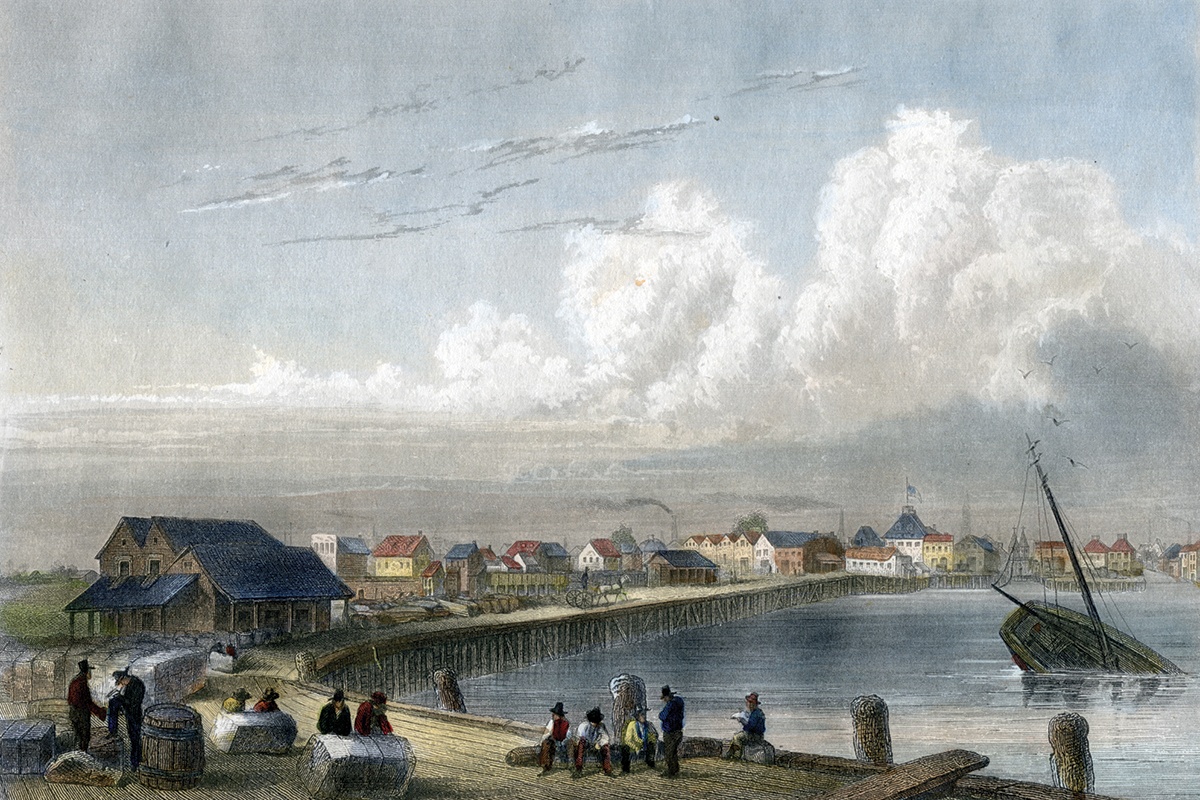A glimpse of prerevolutionary Texas from the first English translation of the earliest German book about the state, excerpted from “Journey to Texas, 1833” by Detlef Dunt (University of Texas Press, 2015):
In view of the large landholdings, it is obvious that the inhabitants cannot be living closely together; nevertheless my closest neighbor lives only ten minutes from my house, since we both have settled not far from our property line. A league of land comprises 4,444 acres consisting of hilly areas and valleys, woods and meadows cut through by small creeks, and when there are several settlements in one location the value of land is such that acreage has already been sold at one dollar. As in the United States the constitution of this country is free, and political quarrels are unknown to us here; still, by way of a newspaper regularly published at San Antonio on the Rio del Norte, we are informed of every world event.
The English language is quickly learned; my wife and I, and my children in particular, can already manage fairly well, and I read the newspaper as well as I do a German one. Although the introduction of slaves is prohibited, keeping them is tacitly tolerated since there would otherwise be a shortage of laborers, because of it being so easy to earn a living. Workingmen earn seventy-five cents to a dollar a day with board.
All items of clothing and footwear are expensive, so almost everyone makes his own. In general, everybody lives in the open and by himself, so there is little need for cash money; thus I am quite happy finally to have my wishes fulfilled and find myself in a position where I can do everything according to my preferences. Everybody builds his own house, either by himself or with help from his neighbors; not much is spent on its beauty, rather it is only constructed of hewn wooden logs. Mine was built—with the assistance of my son Fritz, who can already cut down tree trunks two feet thick—on the order of my former garden house in Oldenburg, but on a larger scale.
Working regularly in the open has made me healthier and stronger than I ever was in Germany, and my wife is blooming like a rose, as are the children. My son Hermann is growing exceptionally and turning into a genuine Mexican. They all have their rustic chores: Lina already milks her three cows, Fritz and Louis help me with farming, and the younger ones have various jobs such as planting and picking cotton, which is exceedingly easy since it grows like weeds. Every day fresh cornbread is made in an iron pot with a fireproof lid, and it tastes like the finest rice cakes. Our corn is of far better quality than in Germany; I grind it in a very simple manner and it yields not only meal but also shelled groats, like rice.
Meat, which, from every kind of animal, is much tastier than in Germany, is eaten fried in the morning at breakfast, as well as at noon and in the evening. There are mosquitoes here just as in all warmer regions. Those who have been bitten by gnats on the German moors will consider this American nuisance worse over there than here. They are more frequent on the coast, but since we are living more than one hundred miles inland, where it is hillier and airier, we have little of this.
In general I have no feeling of disadvantage except the great distance from my friends; if I could conjure them up, I would have heaven on earth. From the faithful description above, you will realize what advantages the farmer here has over the farmer over there; a free constitution and, for the time being, no local taxes whatever and later only slight ones; easy cattle raising, hardly three months of real work, no fertilizing of the acreage, no gathering of winter feed, no need for money, easy construction of houses and making of clothes, etc.; free hunting and game aplenty; everywhere free exercise of religion, etc.; all of this—with the best market for his products—combines to make the farmer happy and, in a few years, affluent.


